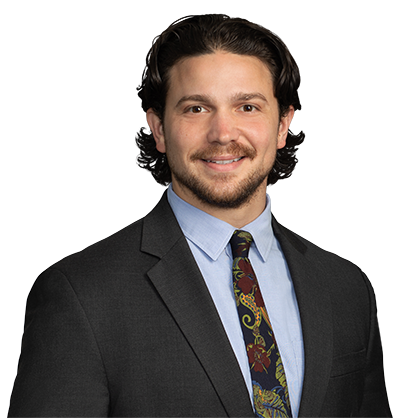Insights
Thought Leadership
U.S. Government Appeals Ruling Finding FCA's Qui Tam Provision Unconstitutional
Case Summary and Background
On October 29, both the United States and a private qui tam relator, Clarissa Zafirov, timely appealed a recent decision that broke with decades of precedent and dismissed Zafirov's five-year qui tam lawsuit under the False Claims Act (FCA) by finding that the FCA's qui tam provisions are unconstitutional. (See United States ex rel. Zafirov v. Florida Medical Associates, LLC, No. 8:19-cv-01236, 2024 WL 4349242 (M.D. Fla. Sept. 30, 2024)). The court found that the FCA's qui tam provisions, which allow private citizens to bring FCA lawsuits and seek damages on behalf of the U.S. government, regardless of whether the U.S. Department of Justice (DOJ) intervenes in the case, violate the appointments clause in Article II of the Constitution. This novel ruling challenging the constitutionality of the qui tam provisions runs counter to every prior district and circuit court opinion to have considered the issue, and it could therefore significantly impact FCA enforcement if it is upheld.
The court's 53-page decision concluded that qui tam relators exercise significant government authority by filing and prosecuting civil actions in federal court, creating binding precedent on the government and, at times, leading relators to obtain financial recovery that is turned over to the government. The court determined that relators like Zafirov occupy a "continuing position established by law" by following statutorily delineated responsibilities, yet their power to prosecute is "untethered to, and unbound by, DOJ policy or the Justice Manual." Id. at 31. And if the action succeeds, relators are entitled to collect between 15 and 25 percent of the judgment. Id. The court found that this authority makes a relator akin to a federal officer and allows relators like Zafirov to exercise "core executive power." Accordingly, it found her "appointment" an unconstitutional grant of executive authority, as it was not granted by any higher executive office. This ruling is the first to declare the qui tam provisions unconstitutional, posing a threat to this long-standing mechanism that has enabled significant financial recovery for the government since the Civil War.[1]
While constitutional challenges to the FCA are not new, each court that had addressed the question of qui tam constitutionality had reaffirmed it. Since June 2023, however, the Supreme Court's decision in United States ex rel. Polansky v. Executive Health Resources, Inc.—in which the court found that the DOJ has broad discretion to seek dismissal of FCA qui tam cases—has brought increased scrutiny. In Polansky, Justice Clarence Thomas drafted a dissenting opinion questioning the constitutionality of qui tam actions and openly encouraging the Supreme Court to review the issue. Now, with multiple justices seemingly ready to revisit the provision,[2] if the Zafirov case reaches the Supreme Court, it could alter FCA enforcement permanently.
Takeaways
In the short term, defendants may attempt to follow suit and seek dismissal of FCA cases based on similar constitutional arguments, particularly where the government has elected not to intervene. Although currently the Zafirov decision only affects FCA qui tam litigation in the Middle District of Florida, similar challenges in other jurisdictions have the potential to expand that scope to other federal districts or even nationwide, depending on which district court hears a case.[3]
On the other side, the DOJ may increase resources and focus more on timely investigating and intervening in appropriate cases in order to avoid relators' being deemed federal officers and risking dismissal without its intervention. And relators' qui tam cases, particularly in the Middle District of Florida, now risk dismissal on constitutional grounds. Some relators may therefore seek friendlier jurisdictions outside of the U.S. Court of Appeals for the Eleventh Circuit if the appeal is unsuccessful, continuing the trend of seeming forum shopping to challenge federal legislation and regulation.
The appeal will no doubt be closely watched, could inspire more constitutional challenges, and could lead to a circuit split and an eventual Supreme Court review of qui tam enforcement nationwide.
Day Pitney LLP's Healthcare team and White Collar Defense and Investigations team remain at the forefront of defending companies and practitioners facing questions about and claims under the False Claims Act. Our defense litigators are well equipped to guide clients through the complexities of False Claims Act proceedings, government investigations, and whistleblower actions, while our Healthcare team provides proactive regulatory guidance and advice on compliance best practices to help mitigate risk and avoid litigation, offering clients comprehensive support in navigating these high-stakes matters effectively.
[1] Qui tam lawsuits have generated more than $50 billion in recoveries since the FCA's 1986 updates, with $2.3 billion in FCA civil settlements and judgments in 2023 alone.
[2] In a concurring opinion in Polansky, Justices Kavanaugh and Barrett agreed with Thomas' view that the Court should consider arguments on the Article II issue in an appropriate case.
[3] See https://www.daypitney.com/insights/publications/2024/09/hlst-1-ftcs-noncompete-rule-update-healthcare-employers/, in which our Healthcare team analyzes the "nationwide injunction" issued by U.S. District Judge Ada Brown of the Northern District of Texas to block the FTC's rule prohibiting certain noncompete agreements.


